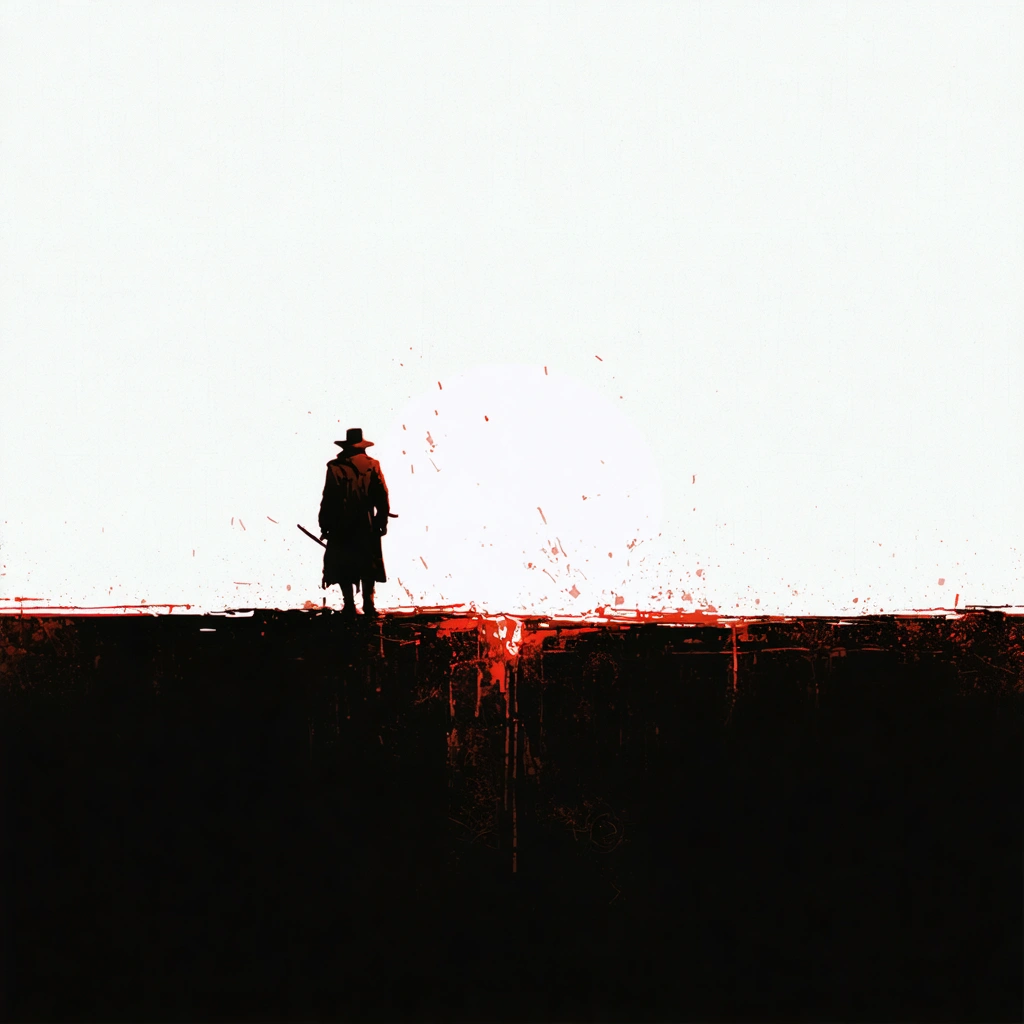
A Glimpse into the Shadows: Why La Zona de Interés Demands Our Attention
Imagine standing at the edge of a place where humanity’s darkest impulses meet the cold machinery of bureaucracy, where the horrors of history are not just remembered but dissected with ruthless clarity. This is exactly what Zona de Interés (or La Zona de Interés) thrusts us into—a cinematic experience that forces viewers to face the uncomfortable truth of how indifference and complacency allowed monstrous events to unfold. The film, often referred to in English as the Zone of Interest, is not just another historical drama; it’s a mirror held up to the past, reflecting the moral failures that echo into our present.
In a world saturated with media that often sanitizes or distorts history, Zona de Interés stands apart by confronting audiences head-on with the banality of evil. It challenges us to reconsider what we know—and what we choose to ignore—about one of the darkest chapters in human history. But why should you, as a viewer or history enthusiast, care about this film? What makes la zona de interés a vital point of reflection rather than just another cinematic retelling?
Behind the Lens: Understanding What La Zona de Interés Reveals
At the heart of la zona de interés lies a profound exploration of human indifference. The film meticulously unpacks how ordinary individuals, caught in the machinery of a genocidal regime, could become spectators to unspeakable atrocities without fully grasping—or perhaps choosing to fully grasp—the magnitude of what was happening. This is not a story told through grand heroic gestures but through the quiet, chilling everyday moments where evil flourished in the spaces between action and inaction.
The Zone of Interest is a term that itself provokes unease: a designated area where horrific acts occurred, yet which was also surrounded by people who went about their lives, sometimes oblivious, sometimes willfully indifferent. The drama strips away the often sensationalized versions of history and instead offers a stark, unvarnished look at the emotional and psychological landscapes inside this “zone.”
- Humanizing the Perpetrators: The film doesn’t excuse cruelty but examines the complex, often disturbing humanity behind it.
- The Role of Silence: It highlights how silence and denial can be as complicit as direct action.
- Memory and Forgetting: The story forces a reckoning with how societies remember—or choose to forget—their darkest moments.
By engaging with these themes, la zona de interés pushes viewers beyond passive consumption, inviting a deeper reflection on personal responsibility and collective memory. It asks uncomfortable questions: How do ordinary people reconcile with witnessing evil? What happens when moral clarity is clouded by fear, convenience, or detachment?
Why The Zone of Interest Resonates Today: Lessons from History’s Darkest Corners
In an age where news cycles move fast and moral outrage often feels fleeting, la zona de interés serves as a crucial counterpoint. It reminds us that history’s darkest moments were not inevitable; they were shaped by choices—large and small—made by individuals and societies. The film challenges the tendency to view atrocities as distant or incomprehensible events, instead grounding them in the very human experiences of those who lived through them.
For educators, students, and anyone passionate about understanding history’s lessons, Zona de Interés offers an invaluable resource. It is a stark, sobering invitation to confront the uncomfortable truths about complicity and the dangers of detachment. As you delve into this film and its themes, you’re not just witnessing history—you’re engaging in a vital conversation about how to prevent such horrors from recurring.
Whether you’re drawn to historical dramas, interested in moral philosophy, or simply seeking a deeper understanding of the past, la zona de interés provides a powerful, unsettling look at the human condition. It’s a story that lingers long after the credits roll, urging us all to look in the mirror and ask: What would we do if placed in the zone of interest ourselves?

Zone of Interest: History’s Dark Mirror Explored
What is "Zona de Interes" and why is it significant?
"Zona de interes", or Zone of Interest in English, is a critically acclaimed historical drama that confronts the harrowing realities of the Holocaust through a haunting and deeply reflective narrative. Directed by acclaimed filmmaker Jonathan Glazer and based on Martin Amis’s novel The Zone of Interest, the film offers a unique perspective on one of history’s darkest chapters.
Unlike traditional Holocaust films that focus on the victims or survivors, la zona de interés centers on the perpetrators and the chilling indifference that allowed atrocities to unfold. This approach invites viewers to examine the banality of evil and the psychological mechanisms behind complicity, making it a profound reflection on human nature and moral responsibility.
The significance of zona de interes lies in its ability to humanize the unimaginable, not by just telling the story of suffering, but by illuminating the social and emotional detachment that enabled genocide. This cinematic exploration challenges audiences to confront uncomfortable truths about history and the dangers of apathy.
How does "Zone of Interest" portray indifference in its historical context?
La zona de interés portrays indifference through meticulous storytelling and character development that reveals how ordinary people became enablers of systemic evil. The film’s narrative is set in the vicinity of Auschwitz, focusing on the lives of Nazi officers and their families who live in a surreal bubble of normalcy amidst the horrors occurring nearby.
Through subtle visual and narrative techniques, the film exposes:
- The psychological distancing tactics used by perpetrators to avoid confronting their actions.
- The normalization of violence through bureaucratic language and routine.
- The moral ambiguity and self-deception that shield individuals from guilt.
This portrayal pushes viewers to understand how indifference is not merely passive but an active, dangerous choice. By focusing on the zone surrounding the death camp rather than the camp itself, la zona de interés effectively mirrors the historical reality that many chose ignorance or denial in the face of evil.
What makes "Zone of Interest" a haunting historical drama?
Zone of Interest earns its haunting quality through a combination of atmospheric cinematography, restrained performances, and a narrative that refuses sensationalism. The film’s chilling quietness and focus on everyday life juxtaposed against the backdrop of genocide create a disturbing cognitive dissonance.
Key elements contributing to its haunting nature include:
- Minimalistic dialogue that leaves much to interpretation, enhancing the psychological tension.
- Use of silence and ambient sounds to evoke unease and introspection.
- Visual contrasts between the idyllic domestic scenes and the brutal reality nearby.
- Strong emphasis on moral ambiguity rather than clear-cut heroes or villains.
These artistic choices invite viewers to experience the emotional weight of history’s dark mirror, making la zona de interés not just a film but an immersive meditation on human complicity and the cost of indifference.
Why is understanding "La Zona de Interés" important for contemporary audiences?
Understanding la zona de interés is vital as it offers lessons that transcend its historical setting. The film serves as a stark reminder of how indifference and denial can perpetuate injustice and suffering in any era.
For contemporary audiences, the movie:
- Highlights the importance of vigilance against hate and systemic violence.
- Encourages reflection on personal and societal responsibility in preventing atrocities.
- Offers insight into the psychological mechanisms behind complicity, which remain relevant in modern contexts.
- Fosters empathy by showing that evil often arises not just from overt hatred but also from everyday choices to ignore wrongdoing.
By engaging deeply with zone of interest, viewers can gain a nuanced understanding of history and its echoes today, helping to build a more conscious and morally aware society.
How does "Zona de Interes" compare to other Holocaust films?
Zona de interes distinguishes itself from many Holocaust films by focusing on the perpetrators’ perspective and the psychological landscape of indifference rather than the victims’ experiences alone. While films like Schindler’s List or The Pianist spotlight survival and resistance, la zona de interés delves into the unsettling normalcy that allowed genocide to occur.
This approach aligns it with works like Claude Lanzmann’s documentary Shoah in its refusal to sensationalize or dramatize events, instead opting for a sober, reflective tone. It challenges audiences to move beyond empathy for victims to understand the complex social dynamics that enable atrocities.
In essence, zone of interest broadens the scope of Holocaust cinema by exploring moral blindness and complicity, offering a complementary yet distinct viewpoint that enriches historical discourse.



